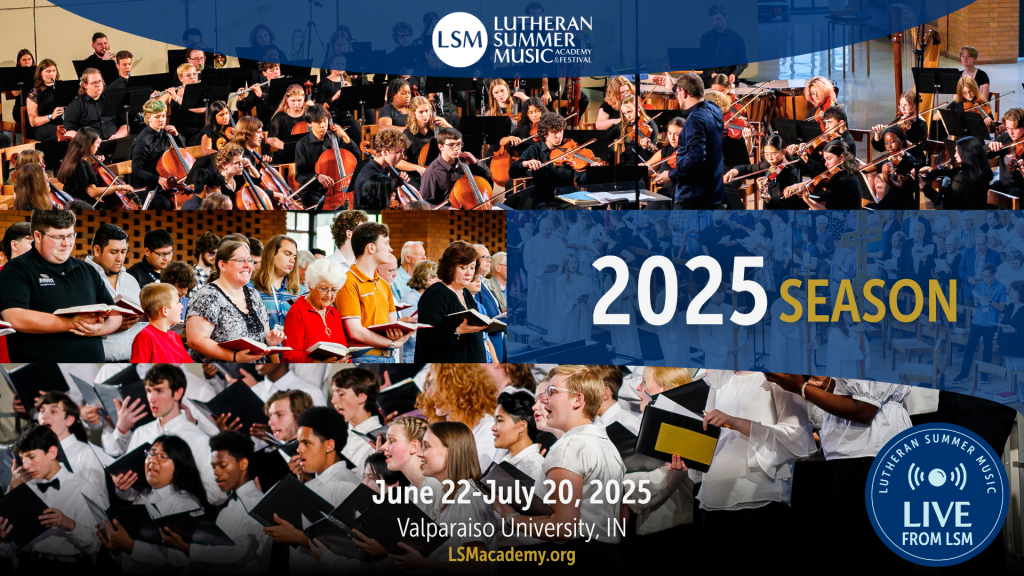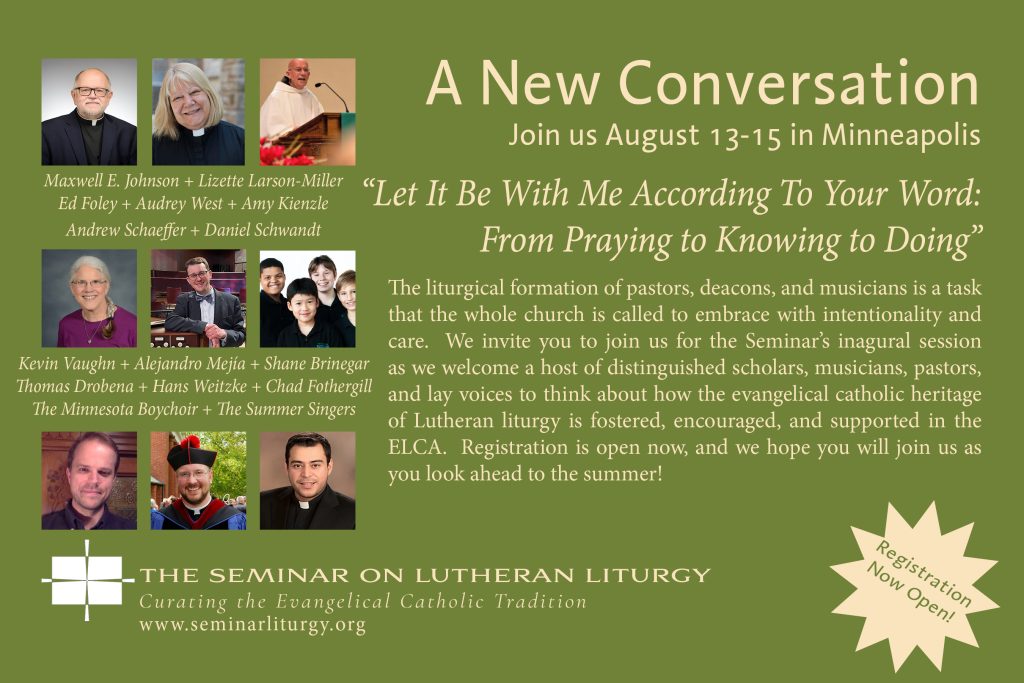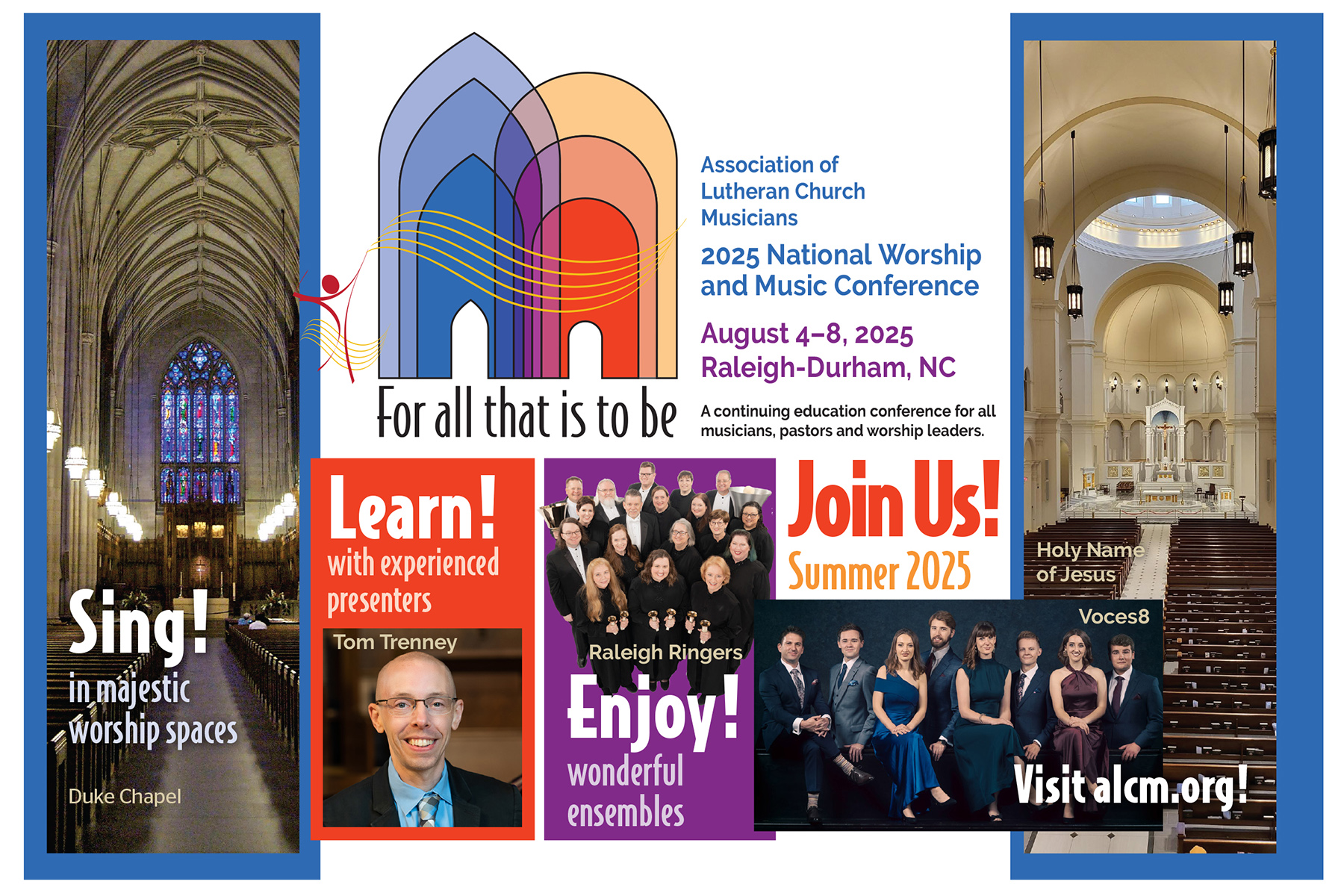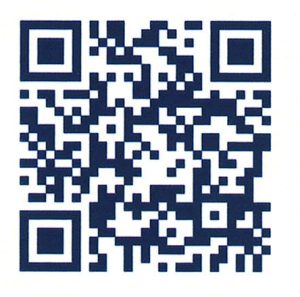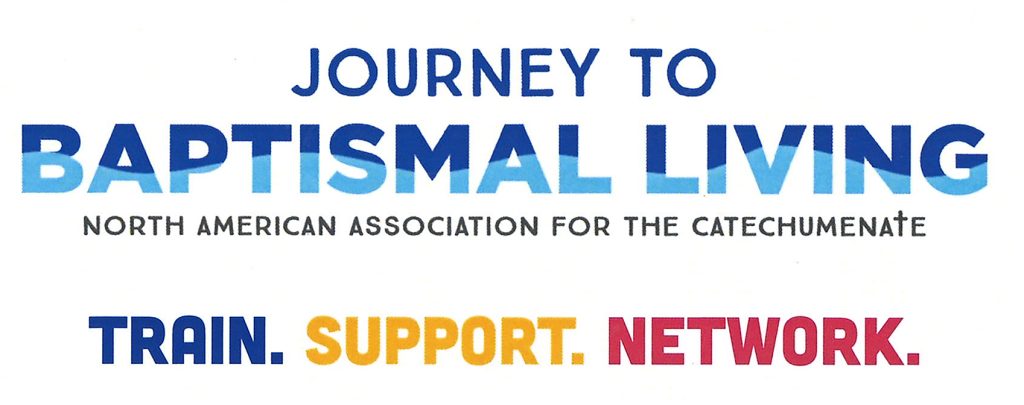By Deacon Nick Bates, Director, Hunger Network in Ohio
In a given week, most of us don’t think about all the effects different public investments and state budget policies have on our daily life.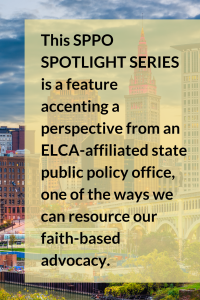
- Think about your standard Sunday. You probably drive on roads and highways, and maybe you drive past a park and fire station. Does your congregation volunteer at a food pantry or shelter that day? Maybe you’ll run some errands and stop in at your local library or visit a loved one at an assisted living center. That evening, if you’re a parent you may help kids get ready for school the next day…
The list goes on and on about the ways state public policy impacts all of our lives. All of these everyday experiences are – in part – supported by state budgets in each of our states.
As people of faith, we are called to be in relationship with our neighbor. As part of our social covenant as neighbors, we must be good stewards of our shared resources (like tax dollars) and ensure they are used effectively and efficiently to serve and strengthen our communities.
The Budget Process
Creating a state budget follows a similar process in most states. In Ohio, the governor begins by giving directions to their cabinet level agencies to draft their proposals a full year before the governor expects to sign the final product. The governor compiles the advice from all the different state agencies and submits priorities to the Ohio General Assembly in early February. Then it travels through months of state House and Senate hearings and before a ”Conference Committee” to reconcile all the different versions before a version is sent back to the governor for their signature and line-item vetoes.
This year, the Hunger Network in Ohio (HNO) coordinated faith and secular communities to be strong advocates on the state budget in an extremely difficult policy climate. Term limits in Ohio have removed skilled legislative leaders from both political parties. This leaves new policymakers, without the knowledge and relationships on the variety of issues in the state budget, trying to catch up and making many mistakes along the way.
Our state budget advocacy illustrates the different strategies needed for any effective advocacy campaign. Over the course of this budget, HNO:
- Participated in six advocacy meetings in 2024 with members of the governor’s administration to discuss priorities in the budget they would propose.
- Coordinated dozens of advocacy partners for a ‘budget boiler room’ to read and review the governor’s proposal for quick response.
- Led meetings with caucus legislative staff to lift up shared priorities.
- Met with more than a dozen key legislative leaders.
- Hosted a “Budget is a Moral Document Advocacy Day” that brought more than 75 faith leaders to Columbus to meet with over 50 legislative leaders.
- Hosted a Faith and Legislative Leader Luncheon with over 100 faith leaders and dozens of legislative leaders.
- Coordinated a rally to lift up our issues for the Conference Committee.
- Encouraged hundreds of emails and phone calls to legislative leaders.
- Offered legislative testimony in seven separate budget committees.
Faith-based advocacy helps to bridge policy experts and lived experiences, professional lobbyists and community advocates, concerns in our community and potential long-term solutions. We do this work by:
Developing Clear Messages: Budgets Are Moral Documents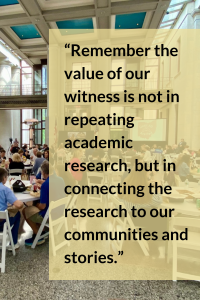
Yes, our issues are complex and interconnected. Based on HNO experience, these practices helped faith-based advocates communicate effectively to congregations, community members and legislative leaders. Advocacy efforts should break down issues into bite-sized pieces that are easy to understand. Remember the value of our witness is not in repeating academic research, but in connecting the research to our communities and stories. We are the experts of our own story.
Helpful Tip: During legislative advocacy meetings, we train participants to engage in conversation with their elected officials and staff. Encourage the people you talk to in an advocacy meeting to ask questions. If they ask a question and you don’t know the answer, that’s good! It creates an opportunity for meaningful follow-up and invites you into another conversation and that will deepen relationships.
Building Positive Relationships
Advocacy ministry is a ministry of relationships. Legislative leaders are extremely busy during budget season. By forming relationships with your representatives before the budget drops, following up regularly and being a trusted messenger, you can help you break through the noise.
Helpful Tip: Think about who you need to be in relationship with to be effective advocates – like business leaders, legislative staff, faith communities, policy researchers and advocates, labor leaders, etc. At HNO, we not only participate in coalitions to bring faith leaders alongside others, we help lead secular coalitions in bringing in the diverse relationships that we have built through conversation as well. Through these coalitions, HNO has been able to expand our reach with advocacy meetings and shape the messaging and policy work of other organizations.
Try New Things

Advocates holding paper plates as a symbol of the many prayers being held with them as they entered the Ohio Statehouse
The reality is that many advocates in Ohio are burned out. Drawing attention to people impacted by issues we prioritize keeps getting more difficult. There isn’t a magical fix, or a one-size-fits all approach. Try new things to reenergize. This year HNO added two successful advocacy strategies to our mix.
The first new strategy we tried was a faith-led press conference on the House version of the state budget during our advocacy day. This press conference generated a lot of media hits on public radio, local news and print media.
HNO also encouraged faith communities to write out their prayers on paper plates (recognizing the need to prioritize food security in Ohio) for the state budget. We then strung these paper plates together and carried them with us to rallies and advocacy events as a symbol that we are carrying the prayers of many with us as we enter the Statehouse. We have well over 200 paper plates attached for our prayer chains.
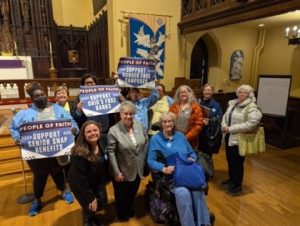
Northwestern Ohio Synod advocates prepare for their advocacy with a budget briefing at Trinity Episcopal Church, across the street from the Ohio Statehouse
Impact in Ohio
We hope and pray that our budget advocacy will produce positive results in both the short- and long-term. We have successfully advocated to stop multiple bad provisions from making their way into the final bill and held off further budget cuts to important programs in our advocacy that sees the budget as a moral document. While it appears that the state will be passing their 14th tax cut for the wealthiest Ohioans in 20 years, our objections – grounded in faith – have educated the media, advocates, and community and legislative leaders that we can do great things in Ohio when we come together as community.
Hopefully, our faith-based advocacy has had a role in preparing for more just and equitable budget policies in the future.

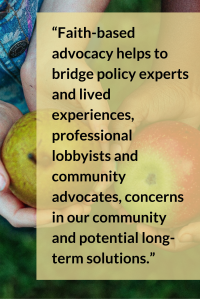

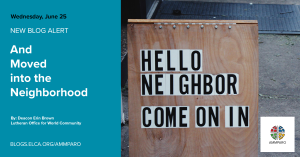

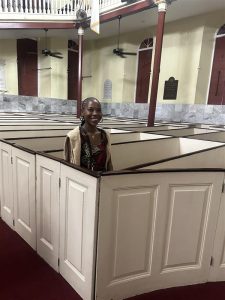
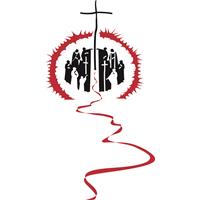 Key Areas of Focus
Key Areas of Focus
